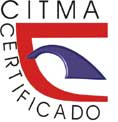Extracción y recuperación de metales con membranas líquidas
Abstract
En el trabajo se presenta una alternativa a procesos convencionales de extracción y purificación de metales mediante la implementación de un proceso extractivo novedoso basado en la tecnología de membranas líquidas. Dicha técnica es una variante al proceso de extracción con solventes. En él se investiga la separación específica de hierro (II) y níquel (II) a partir de sulfatos empleando como portador (extractante) ácido di-2etilhexilfosfórico(D2EHPA) y queroseno como diluyente, a 25oC. La membrana líquida empleada en la experimentación presentó mejor respuesta para la extracción de Fe (II) que para Ni (II). El análisis de resultados permite afirmar que este proceso es de fácil aplicación en la extracción de los metales estudiados.Downloads
Download data is not yet available.
Published
2000-03-18
How to Cite
Hernández-Cruz, L., Patiño-Cardona, F., Rivera-Landeros, I., Cardoso-Legorreta, E., & Arenas-Flores, A. (2000). Extracción y recuperación de metales con membranas líquidas. Minería & Geología, 17(1), 80–85. Retrieved from https://revista.ismm.edu.cu/index.php/revistamg/article/view/23
Issue
Section
Articles
Copyright & Licensing
- Authors retain copyright and guaranteeing the right magazine to be the first publication of the work as licensed under a Creative Commons Attribution-NonCommercial that allows others to share the work with an acknowledgment of the work's authorship and initial publication in this journal.
- Authors may establish separate supplemental agreements for the exclusive distribution version of the work published in the journal (eg, place it in an institutional repository or publish it in a book), with an acknowledgment of its initial publication in this journal.
- Authors are allowed and recommended to disseminate their work through the Internet (e.g., in institutional telematic archives or on their websites) before and during the submission process, which can produce interesting exchanges and increase citations of the published work. (See The effect of open access)









